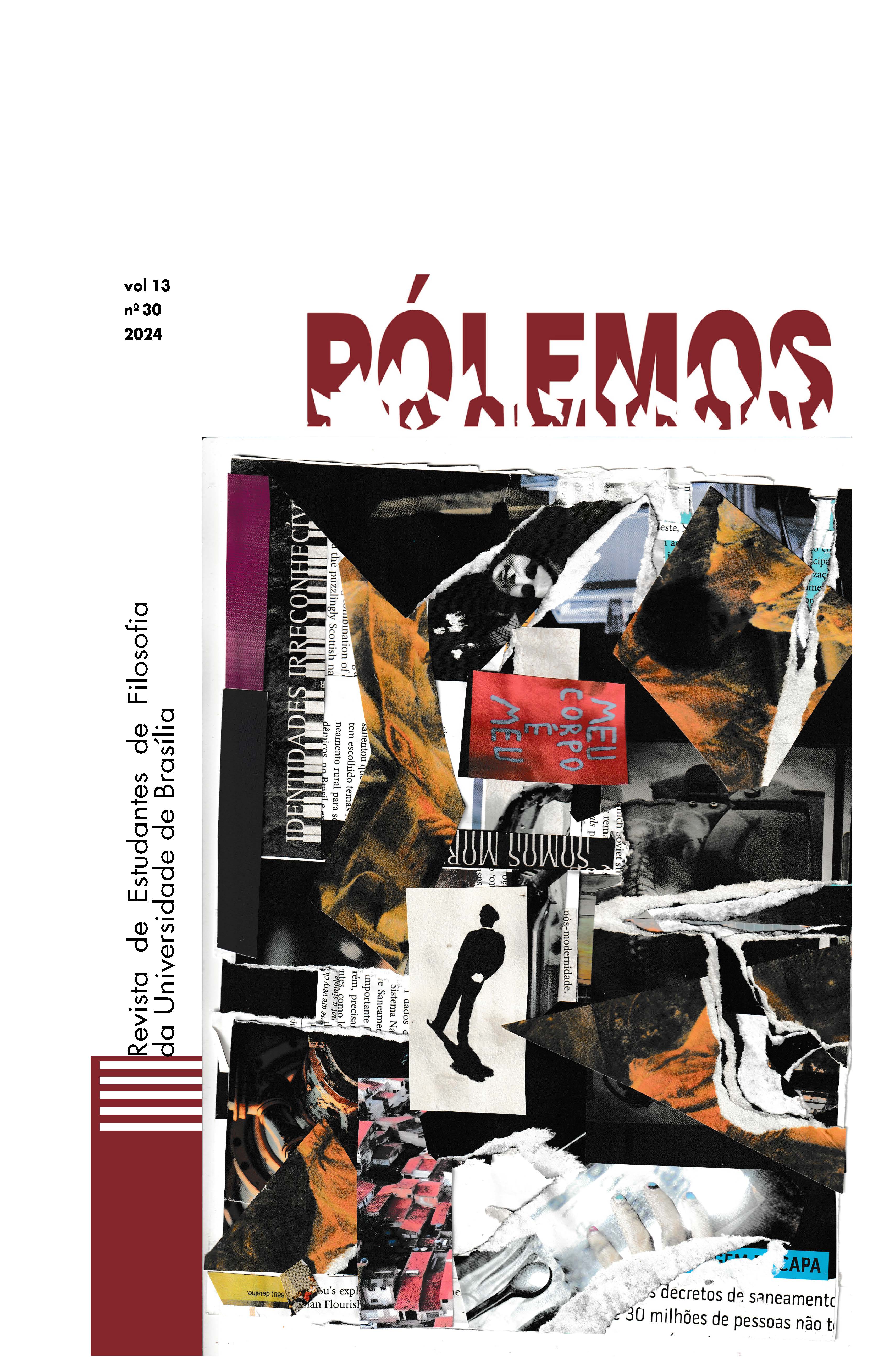ANTHROPOMORPHISM IN CONVERSATIONAL ARTIFICIAL INTELLIGENCE
DOI:
https://doi.org/10.26512/pl.v13i30.56911Keywords:
Anthropomorphism. Conversational weak AI. Daniel Dennett. John Searle.Abstract
Although the field of artificial intelligence (AI) has made extensive use of anthropomorphism as an interaction between humans and machines, little attention has been paid to research on anthropomorphism as a category of AI. This attention is even less when it comes to philosophically discussing the conceptualization of an anthropomorphized AI. This paper aims to philosophically understand the scope of anthropomorphism in conversational AI. Thus, first, the formative aspects of this technology were presented. Then, the mechanisms of anthropomorphism that structure it were investigated. Finally, to support the discussion, Daniel Dennett's functionalist approach was used, as well as the concepts present in John Searle's philosophy on intentionality and the Chinese room experiment. This work therefore develops a comparison between these two philosophers on anthropomorphism in conversational AI.
Downloads
References
AIRENTI, Gabriella. The Cognitive Bases of Anthropomorphism: From Relatedness to Empathy. International Journal of Social Robotics, v. 7, n. 1, p. 117–127, 2015. DOI: https://doi.org/10.1007/s12369-014-0263-x.
BASSETT, Caroline. The computational therapeutic: exploring Weizenbaum’s ELIZA as a history of the present. AI & SOCIETY, v. 34, n. 4, p. 803–812, 2019. DOI: https://doi.org/10.1007/s00146-018-0825-9.
BUCKNER, Cameron J. From Deep Learning to Rational Machines: what the history of philosophy can teach us about the future of artificial intelligence. 1. ed. Oxford University, Press New York, 2023.
BUCKNER, Cameron J. Two approaches to the distinction between cognition and mere association. International Journal for Comparative Psychology, v. 24, n. 1, p. 1–35, 2011. DOI: https://doi.org/10.46867/ijcp.2011.24.04.06.
COPELAND, Jack. The Turing Test. Minds and Machines, v. 10, 2000a, p. 519-539. DOI: https://doi.org/10.1023/A:1011285919106.
COSTA, A. H. R.; COZMAN, F. G. O futuro da pesquisa em inteligência artificial. Revista USP, n. 141, p. 133–146, 2024. DOI: https://doi.org/10.11606/issn.2316-9036.i141p133-146.
COZMAN, Fabio G. No canal da Inteligência Artificial – Nova temporada de desgrenhados e empertigados. Estudos Avançados - USP, v. 35, n. 101, p. 7–20, 2021. DOI: https://doi.org/10.1590/s0103-4014.2021.35101.002.
DENNETT, Daniel. C. Consciousness Explained. Boston: Little, Brown, and London: Allen Lane, 1991.
DENNETT, Daniel. C. Intentional Systems. Journal of Philosophy, v. 68, n. 4, p. 87–106, 1971. DOI: https://doi.org/10.2307/2025382.
DENNETT, Daniel. C. Tipos de Mentes: hacia uma comprensión de la conciencia. Trad: Francisco Páez de la Cadena. Madrid: Editorial Debate, 2000.
GOMES, Victor P. Revisitando o teste de Turing: análises e consequências. 2023. 109 f. Tese de doutorado - Universidade Federal do Rio Grande do Norte, Centro de Ciências Humanas, Letras e Artes, Programa de Pós-Graduação em Filosofia, Natal, 2023. Disponível em: https://repositorio.ufrn.br/handle/123456789/57607.
HAUGELAND, John. Artificial Intelligence: The Very Idea. A Bradford Book. The MIT Press: Cambridge, Massachusetts, London, England, 1985.
HAYMOND, S.; MCCUDDEN, C. Rise of the Machines: Artificial Intelligence and the Clinical Laboratory. The Journal of Applied Laboratory Medicine, v. 6, n. 6, p. 1640–1654, 2021. DOI: https://doi.org/10.1093/jalm/jfab075.
HUAWEI TECHNOLOGIES COMPANY, LTD. Artificial Intelligence Technology. Singapore: Springer Nature Singapore, 2023.
KAUFMAN, Dora. A inteligência artificial irá suplantar a inteligência humana? Barueri: Estação das Letras e Cores, 2019.
MCCARTHY, John. What is artificial intelligence? Computer Science Department, Stanford University, p. 13, 2004.
SEARLE, John R. Intencionalidade. Trad. Júlio Fischer. 2a ed. São Paulo: Martins Fontes, 2002.
SEARLE, John R. Mente, linguagem e sociedade: filosofia no mundo real. Trad. F, Rangel. Rio de Janeiro: Rocco, 2000.
SEARLE, John R. Minds, brains, and programs. Behavioral and Brain Sciences, v. 3, n. 3, p. 417–424, 1980. DOI: https://doi.org/10.1017/S0140525X00005756.
SHETTLEWORTH, Sara J. Cognition, communication, and behavior. 2. ed. Oxford, New York, 2010.
TEIXEIRA, João de F. A mente segundo Dennett. São Paulo: Perspectiva, 2008.
TURING, Alan M. Computing, machinery and intelligence. Mind, v. LIX, n. 236, p. 433–460, 1950. DOI: https://doi.org/10.1093/mind/LIX.236.433.
VIANA, W. C. Técnica e Inteligência Artificial: O debate entre J. Searle e D. Dennett. Pensando - Revista de Filosofia, v. 4, n. 7, p. 70-80, 2013. DOI: https://doi.org/10.26694/pensando.v4i7.1326.
WEIZENBAUM, Joseph. ELIZA – A Computer Program for the Study of Natural Language Communication Between Man And Machine. Communications of the Association Computing Machinery, v. 9, n. 1, p. 36-45, MIT, Cambridge, 1966. DOI: https://doi.org/10.1145/365153.365168.
WEIZENBAUM, Joseph. Computer Power and Human Reason: From Judgement to Calculation. W.H. Freeman. New York, 1976.
Downloads
Published
How to Cite
Issue
Section
License
Copyright (c) 2025 PÓLEMOS – Revista de Estudantes de Filosofia da Universidade de Brasília

This work is licensed under a Creative Commons Attribution-NonCommercial-NoDerivatives 4.0 International License.
Todos os trabalhos que forem aceitos para publicação, após o devido processo avaliativo, serão publicados sob uma licença Creative Commons, na modalidade Attribution-NonCommercial-NoDerivatives 4.0 International Public License (CC BY-NC-ND 4.0). Esta licença permite que qualquer pessoa copie e distribua a obra total e derivadas criadas a partir dela, desde que seja dado crédito (atribuição) ao autor / Ã autora / aos autores / às autoras.


